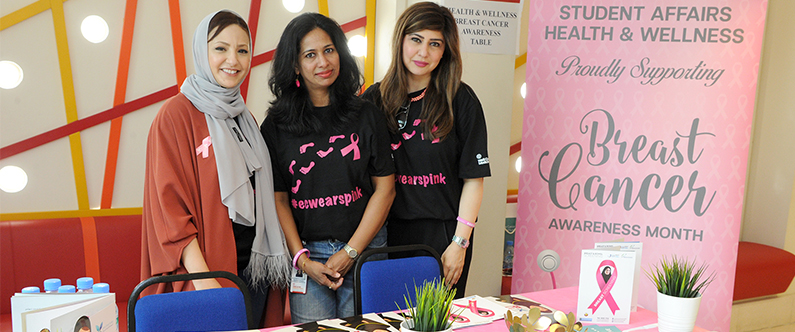Student Affairs team provides vital support during pandemic
 The health and wellness team has provided much-needed support for WCM-Q students during the pandemic.
The health and wellness team has provided much-needed support for WCM-Q students during the pandemic.
For many of the young people training to be doctors at Weill Cornell Medicine – Qatar (WCM-Q), 2020 would have been the first time they have lived away from home, and for some of them home may be in a different country.
But with the country in lockdown and lessons moving to online only, students - particularly those who joined WCM-Q in September 2020 - may have felt isolated and without social support structures.
However, the health and wellbeing of students at WCM-Q is of paramount importance, and the college’s Division of Student Affairs has been doing all it can to keep students safe and happy during the pandemic.
Since lockdown was implemented and social distancing measures called for, the division’s health and wellness team have ensured students who are living in Education City have a community they can rely on for support.
Faten Shunnar, director of student affairs at WCM-Q, said: “Our students from Qatar are able to stay with their families, but some from other nations may be hundreds of even thousands of miles from their homes and families, so it is vital that we are there to provide help and support. The health and wellness team has been working tirelessly to develop new, virtual programs to foster a social network, alongside supplying care packages to students in the dormitories.
“They have taken a holistic approach to welfare, so they have provided nutritional advice alongside mental health counselling and socializing.”
The programs they have developed include virtual games nights, one-on-one online counselling, virtual cook-offs, and workshops about managing stress. The annual ‘Movember’ competition to grow the best moustache was held virtually, and a food pantry was organised for those living in Education City dormitories. The care packages contained food items, sanitizers and masks, and when students expressed concerns about being able to exercise, yoga mats and resistance belts were also provided.
Ms Shunnar said: “College is not just about education, there is also a strong social element that leads to lasting friendships. With students being restricted in where they can go and who they can meet, the health and wellness team has stepped in to help develop social networks and introduce new students to each other.”
The health and wellness team has also been helped by the students themselves. Student volunteers have helped organise online events and spread the word about virtual activities and support programs.
For the winter break, the team has developed the Winter Guide, designed to inform new students of the best things to do and see around Qatar. There are also activities planned like winter bingo, which will involve students driving around the city to visit tourist attractions and take photos.
Dr. Ravinder Mamtani, professor and vice dean for student affairs, population health and lifestyle medicine, said: “Hopefully our newest students now feel that they are part of the WCM-Q family and as the COVID 19 vaccines are rolled out, we will be able to return to the classroom and the many activities that we have held online will be able to take place face-to-face.”